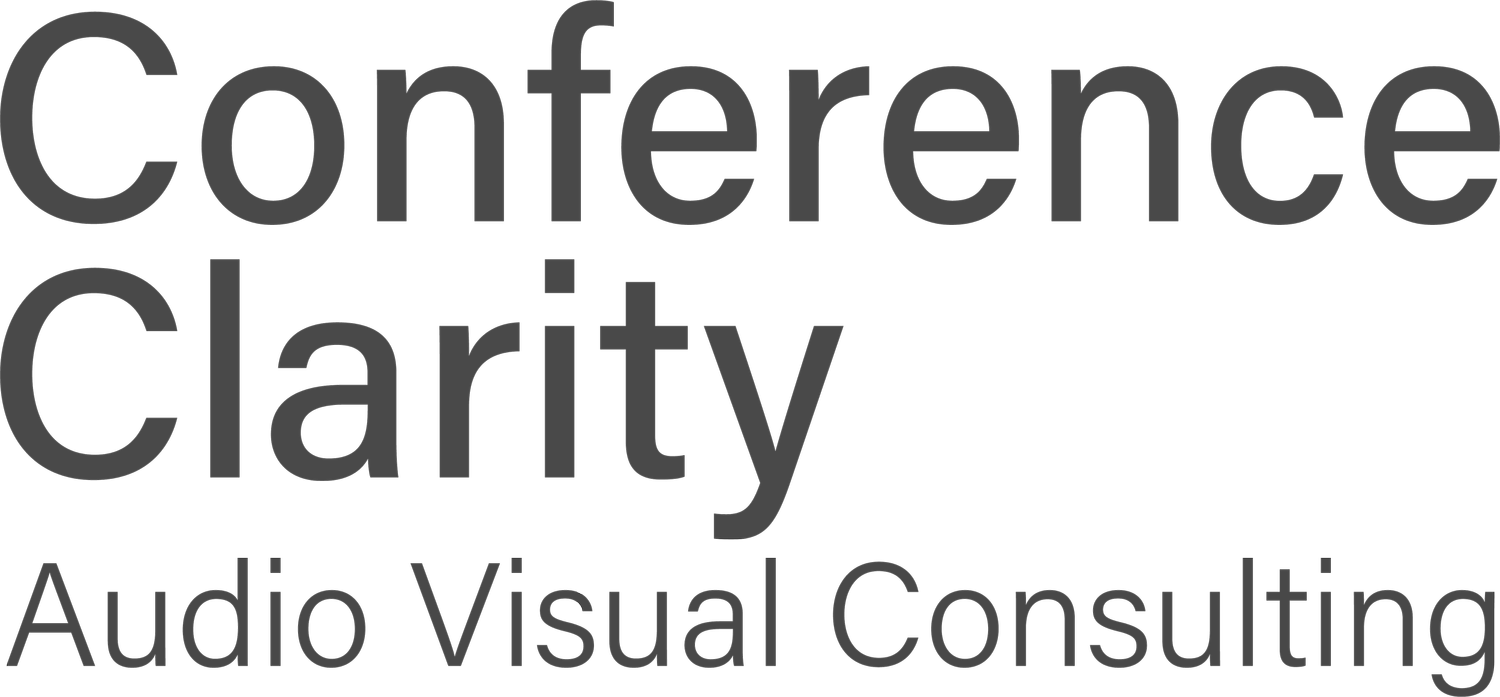What’s the Difference Between an AV Consultant and an Integrator?
If you’re managing a project that involves audio visual (AV) technology — whether it’s a new conference room, a training center, executive boardroom, or a large auditorium — you might have come across two terms that sound similar but mean different things: AV consultant and AV integrator. Knowing the difference can help you make smarter decisions and get the results you want without the usual headaches.
Let’s break down what each role does, how they work together, and why you might need one or both for your next AV project.
What Is an AV Consultant?
Think of an AV consultant as your project’s strategic advisor. Their job is to understand your business goals, figure out what you need from your AV system, and design a solution that fits those needs — all while keeping your budget and timeline in mind.
What Does an AV Consultant Do?
Needs assessment: They start by talking with you and your team to understand how the space will be used and what your goals are.
System design: Using their expertise, they design a tailored AV system that fits your requirements — whether it’s video conferencing, sound reinforcement, digital signage, or all of the above.
Technology recommendations: They advise on the best products and technologies to meet your needs, without pushing specific brands unless it truly fits your project.
Documentation and specs: They create detailed plans and technical documents that outline the system’s components and how everything should work.
Project management support: Some consultants also help oversee the project to ensure it stays on track and the design is followed (we do).
In short, AV consultants help you make informed decisions by translating your business needs into a clear AV plan. They’re your guide from concept to completion.
What Is an AV Integrator?
Once the plan is in place, that’s where an AV integrator steps in. Integrators are the hands-on team who take the consultant’s design and make it a reality. They install the equipment, configure the system, and make sure everything works seamlessly.
What Does an AV Integrator Do?
Equipment procurement: Integrators often handle ordering the equipment needed for your system, sometimes working with multiple manufacturers.
Installation: Their team installs speakers, displays, projectors, control panels, cabling, and all the other hardware.
System programming: They configure the AV system software and control interfaces to meet your needs.
Testing and troubleshooting: Before handing over the project, integrators thoroughly test the system to make sure everything runs smoothly.
Training and support: They often provide training for your staff on how to use the new system and offer ongoing technical support.
Think of AV integrators as the skilled builders and technicians who bring the consultant’s design to life.
Why Are Both Important?
Some companies try to hire just one or the other, but in many cases, working with both an AV consultant and an integrator brings the best results.
Avoid costly mistakes: A consultant ensures the design matches your goals and budget from the start. Without one, you risk buying the wrong equipment or creating a system that doesn’t fit your needs.
Better project management: Consultants can help manage timelines and quality, while integrators focus on technical execution.
More transparency: Having both roles can provide checks and balances, ensuring the project stays on track and within budget without potentially being upsold.
Long-term value: A well-designed and professionally installed AV system is easier to use, maintain, and upgrade.
In some cases, an integrator may offer consulting services, but independent consultants bring impartial advice and a wider perspective on technology options.
How to Choose the Right Partner for Your AV Project
Understand your needs: Are you looking for strategic guidance, hands-on installation, or both?
Check experience: Look for consultants and integrators with a track record in your industry or project type.
Ask about collaboration: The best outcomes happen when consultants and integrators work closely together.
Consider your budget: Sometimes hiring both might seem more expensive upfront, but it can save money over time by avoiding mistakes.
Final Thoughts
Understanding the difference between an AV consultant and an integrator is key to a smooth and successful AV project. Consultants bring the vision and plan, while integrators handle the technical work to make that vision come alive. Working with the right experts means you’ll get a system that truly fits your needs, is easy to use, and lasts for years to come.
Need help making sense of your AV options? We’d love to chat.
